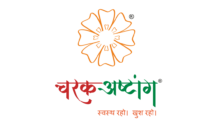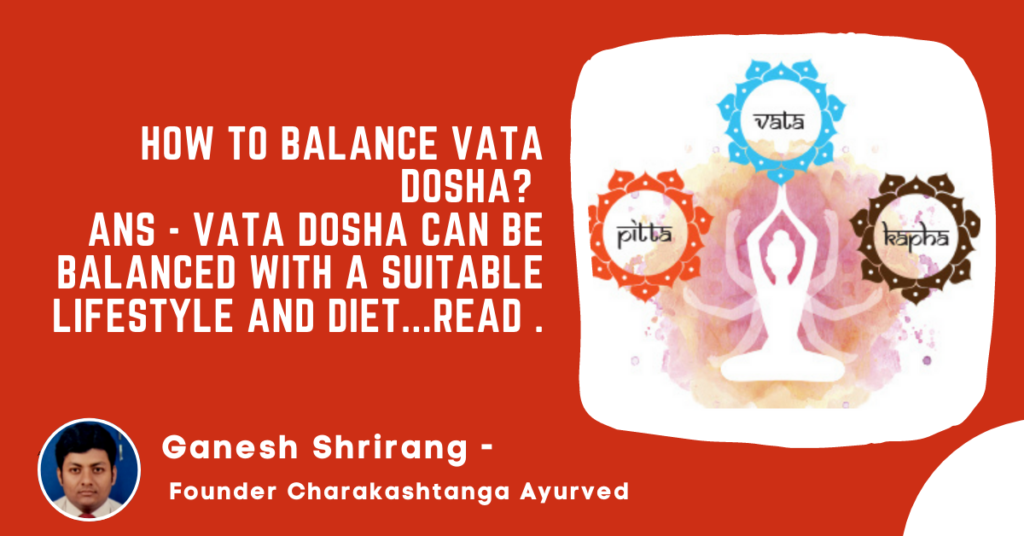Ayurveda is a 5000 years old Indian ancient medicinal system and has spread across the world, shaping and improving many lives. It is the only medicinal system in the world that follows preventive plus curative methodology. The concept of Ayurveda is based on the delicate balance between mind, body, and spirit.
According to Ayurveda, each human being comprises the five elements or building blocks of nature, Earth, Air, Water, Fire, and Space. And each one of us possesses a unique balance of these five elements which is known as Doshas, Vata, Pitta, and Kapha. Good health is considered to be a perfect balance between these three doshas.
Unhealthy diet, sedentary lifestyle, stress, repressed emotions, and seasonal changes can disturb the doshic balance causing diseases.
What is Vata Dosha?
Vata Dosha comprises of two elements air and space and is the leader of three ayurvedic principles in the body. Vata is the driving force behind all activity in the body. It is responsible for breathing, speech, circulation, and digestion. It is also the most vulnerable to life’s changes and creates the most problems when out of balance.
People with dominant Vata are creative, enthusiastic, passionate, quick-witted, and open to new experiences. In addition to this, they are active. The physical characteristics of Vata type include thin body frame, dry skin and hair, cold hands and feet, irregular teeth, and may have sudden bouts of fatigue and tiredness. If Vata dosha becomes imbalanced, it manifests in the body as weight loss, hypertension, constipation, restlessness, and digestive issues. To understand more about Vata dosha or to check if you are a Vata type, schedule an online ayurvedic doctor consultation.
Reasons for Vata Imbalance
Vata dosha impacts the body, mind, and emotional well-being of an individual. Vata dosha imbalance can be caused by irregular and sedentary lifestyle, too dry or too cold weather, as well as cold, bitter, and dry food. People having dry emotions or those who show cold behaviour are known to have this imbalance as well.

Symptoms and Effects of Vata Imbalance
If you have a Vata type constitution (which an ayurvedic doctor consultation can help you determine), then you may start to feel the following symptoms.
Physical symptoms include dehydration, constipation, rough dry skin, bloating, general body pain, weakness, fatigue, sleep disturbances, tremors and twitches, dizziness, and sensitivity to cold.
Behavioural symptoms include anxiousness, nervousness, confusion, fearful, impatient, desire to run away, and excessive movement or speech.
Effects
As the symptoms of vata dosha settle in, they become tough to change. Vata imbalance can cause effects such as weakening muscles, joint pains, headache, stiffness, weight loss, cramps, and phobias.
How to Balance Vata?
Vata Dosha can be balanced with a suitable lifestyle and diet. However, you must consult an Ayurveda doctor for this.
Here are a few tips to help reduce Vata dosha and balance it efficiently.
Food
People suffering from Vata imbalance need to follow Vata pacifying diet. This includes foods that are naturally sweet, sour, and salty. Avoid intake of junk and oily foods. Eat grounding foods like sweet potatoes, moist, warming grains and soups. Indulge in warming spices like ginger, black pepper, cumin, cinnamon, and plenty of warm or room temperature fluids. Eat your meal at a proper time and in a peaceful environment.
Lifestyle Changes
Vata imbalance leads to restlessness, due to which you might feel like doing a lot of things simultaneously. However, too much activity can further aggravate Vata imbalance. We advise that you follow a routine in your sleeping and eating timings and also avoid exhausting with too much to do.
Get a Nourishing Oil Massage
Oil massages ensure moist, soft, and glowing skin. The oils draw toxins and impurities out of the skin. When coupled with Ayurvedic massage technique it strengthens muscles, relaxes your mind and relieves aches and pains. You can book an appointment for Ayurvedic massage and balance your Vata dosha.
Get 7 to 8 Hours of Sleep
There are amazing health benefits of getting 8 hours of sleep each day. However, the digital world doesn’t let that happen. Sleepless nights have a drying effect on the body which aggravates Vata. So, go to bed by 10 p.m. at the latest. If you can’t fall asleep, listen to soothing music, read a book, or get a warm bath. Ensure you do watch TV or your phone.
Exercise Moderately
Vata is vibrant and dynamic. Fast movements like aerobics or cardio can increase Vata. Slow, calm Yoga practice and Pilates benefit the Vata types, especially when done in winters. You can do some breathing exercises, Surya Namaskar, and many more moderate exercises to balance the Vata dosha.
These are the few tips to help you balance the Vata dosha. However, if still the symptoms persist, you can go for a Panchkarma Therapy at CharakAshtanga which reverses the root cause of Vata imbalance. We have experienced Ayurveda doctors to help you fix your Vata dosha. Book an online ayurvedic doctor consultation now and have better health and balance through a holistic, tailored plan.
Also, if you want some line of treatment from allopathy, ayurvedic or homeopathy doctors, you can visit MEMD platform for online consultation. This platform contains efficient doctors specialized in particular fields, they can treat you right from your home.

